Metal detectorists find buried WWII aircraft in Ukraine while disarming wartime bomb
The aircraft were sent to the Soviet Union in 1941 to help the Allied war effort, but they were dumped to avoid payment.
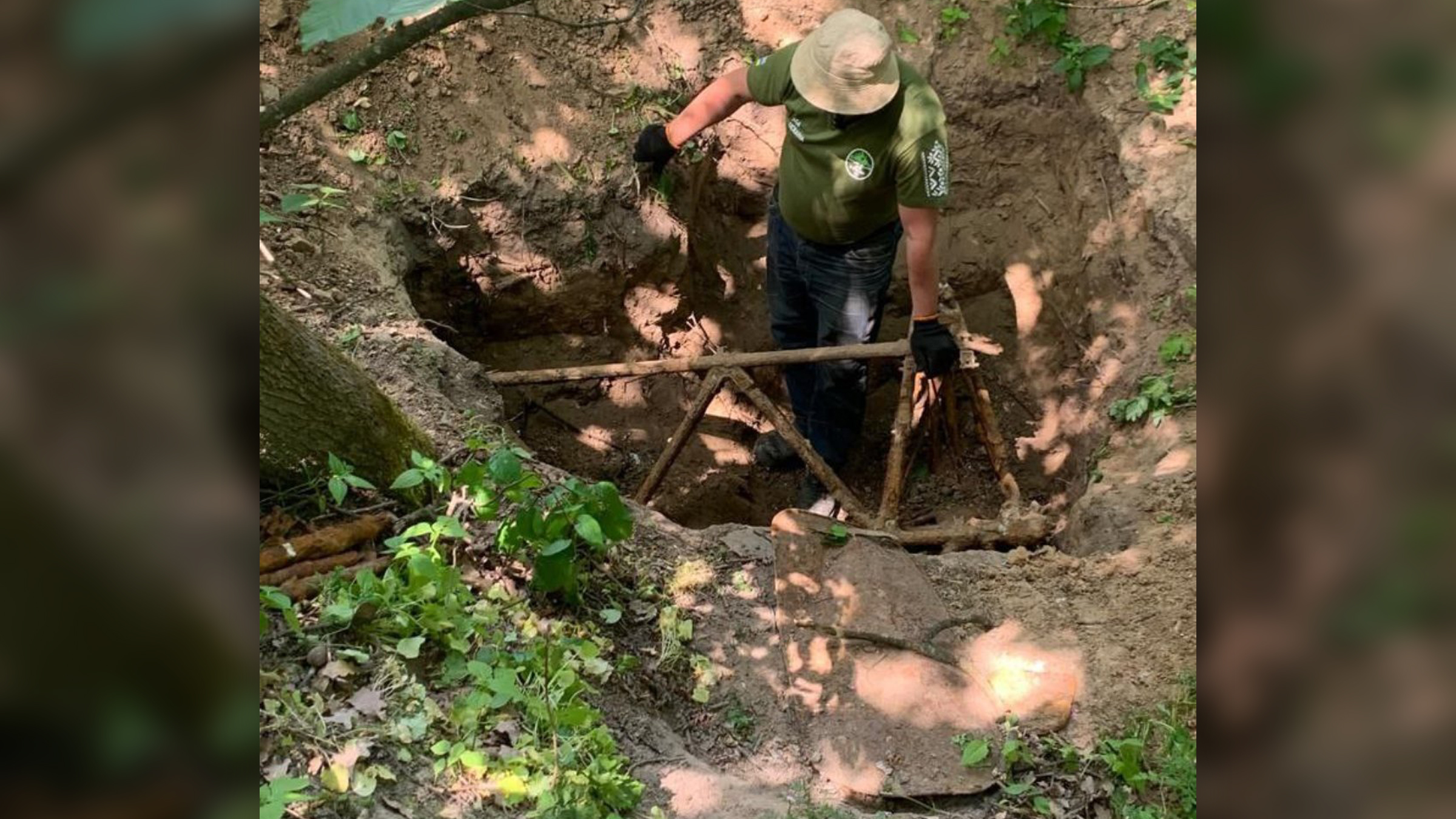
Nearly 80 years since they last flew, eight British Hawker Hurricane fighter aircraft from World War II have been uncovered in a forest near the Ukrainian capital, Kyiv.
The aircraft, now rusted and in fragments, were buried there after the war's end, likely by the Soviet Union in an attempt to avoid paying the United States for them under the Lend-Lease program.
Despite the secretive burial, rumors had circulated for many years about the discarded aircraft near an old airfield on the outskirts of Kyiv, according to a statement from Ukraine's Oleg Antonov State Aviation Museum in Kyiv.
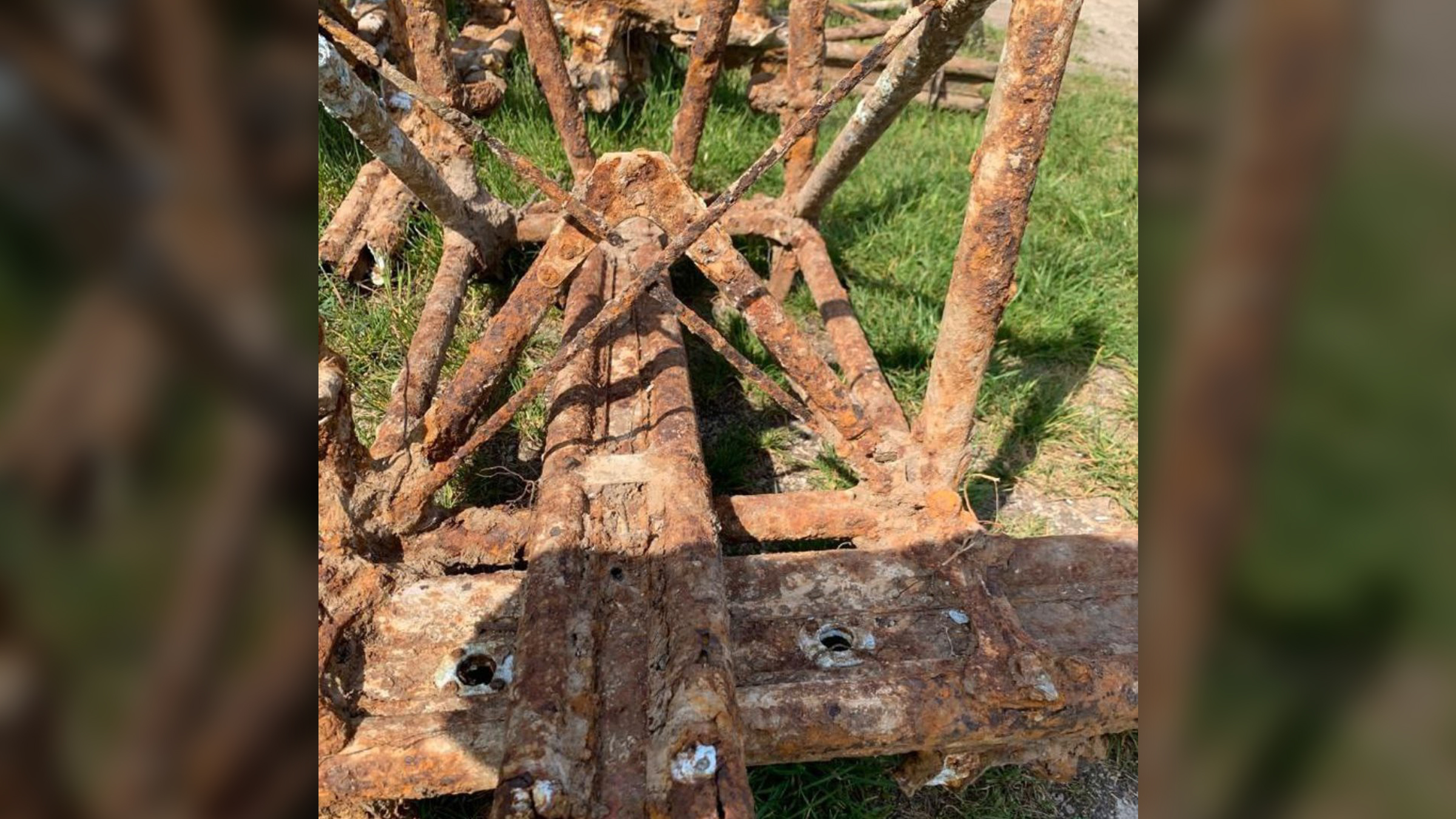
The wrecks were located earlier this year after an unexploded wartime bomb was found and defused in a ravine nearby. The ravine was then checked with metal detectors, which revealed the underground remains, according to BBC News.
The wrecks of the fighter aircraft have now been dug up by volunteers and donated to the aviation museum, where they'll be preserved for display.
Related: 30 incredible sunken wrecks from WWI and WWII
"It is very rare to find this aircraft in Ukraine," Oleks Shtan, a former airline pilot who led the excavation, told BBC News. "It's very important for our aviation history because no Lend-Lease aircraft have been found here before."
Sign up for the Live Science daily newsletter now
Get the world’s most fascinating discoveries delivered straight to your inbox.
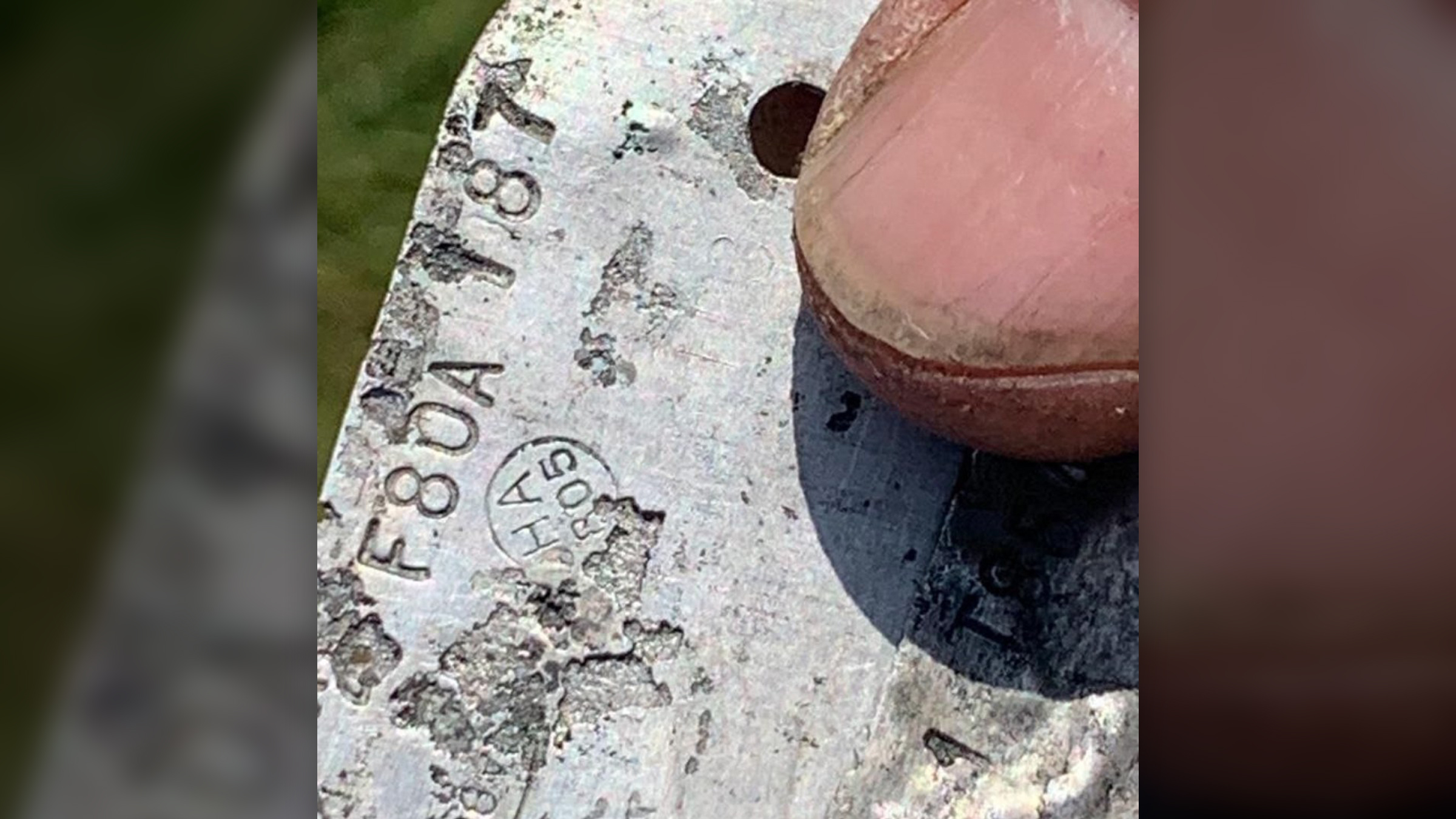
Vital fighters
Although they're often overshadowed by the U.K.'s newer and faster Spitfire fighters from WWII, Hawker Hurricanes were instrumental in the Allied victory over the Axis powers led by Nazi Germany.
The single-seat aircraft were used in every theater of the war and on warships as Sea Hurricanes, which were often launched from catapults.
The Royal Air Force's Hurricane fighters also shot down more than half of the enemy aircraft destroyed during the Battle of Britain in 1940, when the German Luftwaffe launched thousands of large-scale attacks in an attempt to force the U.K. to surrender.
"The Hurricane was a strong, easy to fly machine," Shtan said "It was stable as a gun platform and suitable for inexperienced pilots."
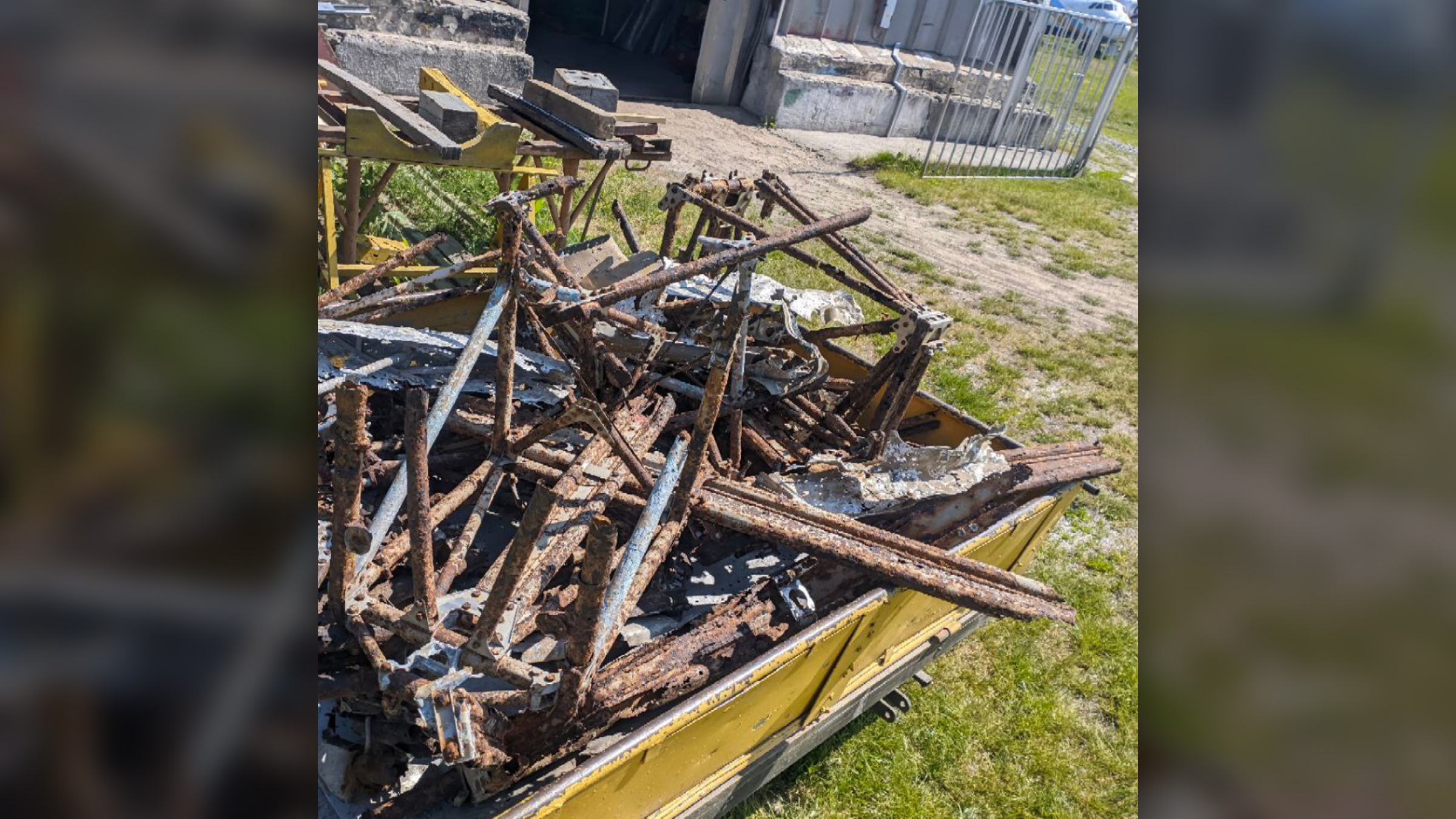
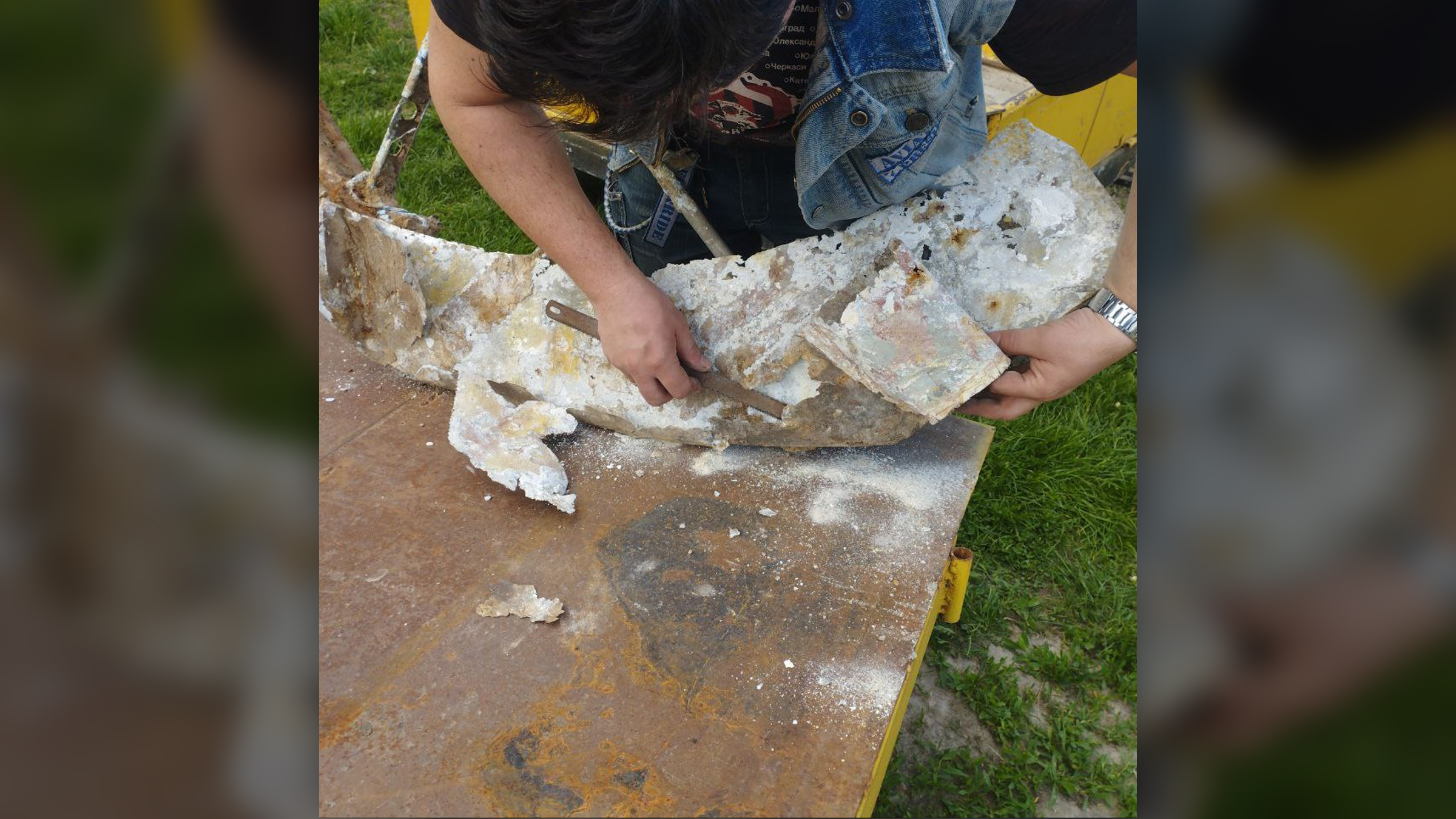
According to BBC News, the buried aircraft were among 3,000 Hurricanes sent to the Soviet Union after 1941; the U.S. purchased them from the U.K. under the Lend-Lease program, in which the U.S. funded the Allied war effort from 1941 to 1945.
The Hurricanes were then transferred to the Soviet Union, with the understanding that the Soviets would repay the U.S. for any aircraft that were still intact at the end of the war.
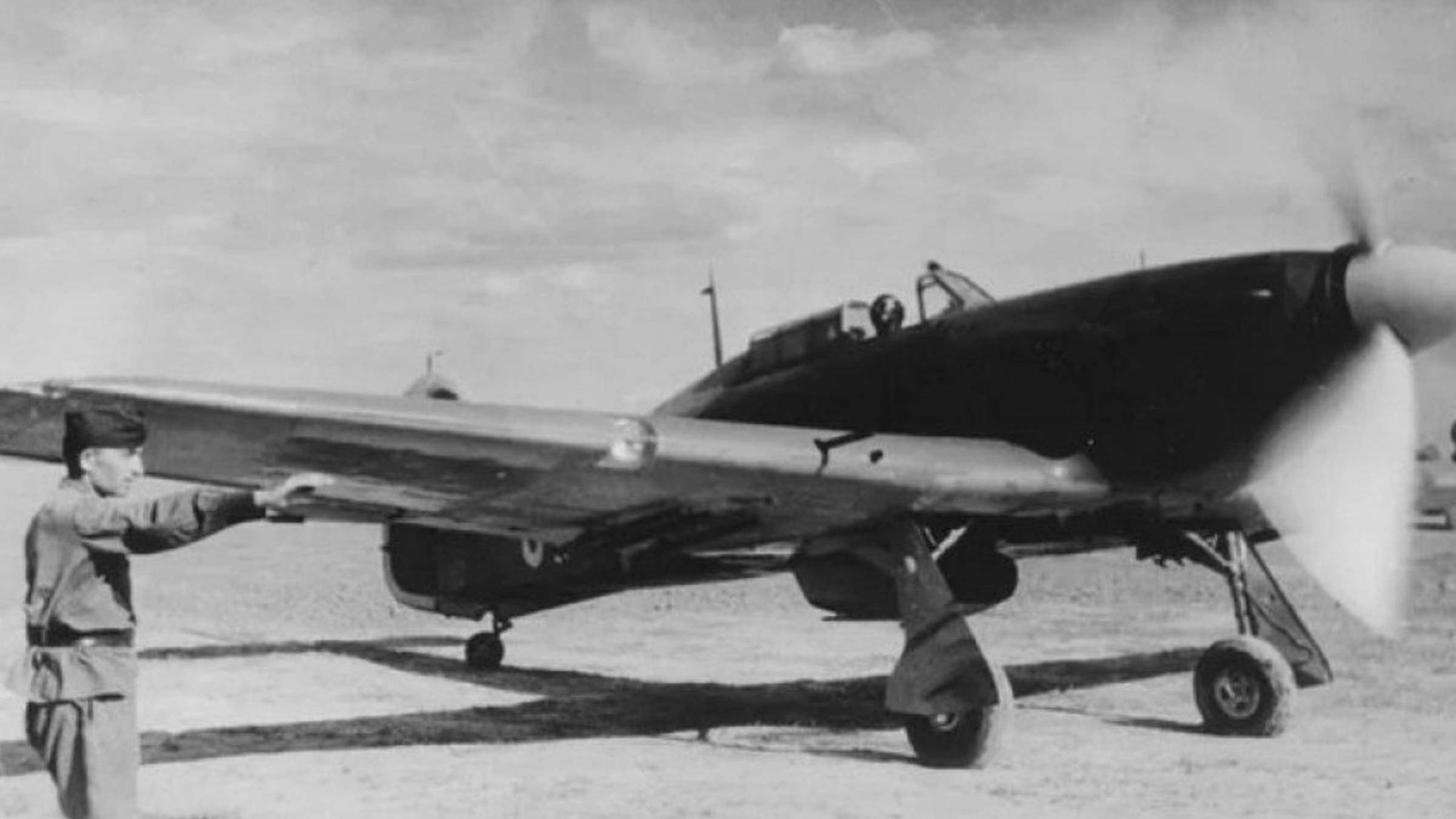
But the Hurricanes near Kyiv were stripped of parts and dumped into the ravine after the war, a tactic that got the Soviet Union off the hook for their payment, according to BBC News.
Ukraine was the southernmost part of the Soviet Union in Europe until its independence in 1991; and it was the scene of several major battles after the invasion by Nazi Germany in 1941.
Like the U.S., the U.K. is now a contributor to Ukraine's efforts to fight an invasion of its territory by Russia, which started in February 2022.
"The Hurricanes are a symbol of British assistance during the years of the Second World War, just as we are very appreciative of British assistance nowadays," Valerii Romanenko, the head of research at the aviation museum, told BBC News. "The U.K. is one of the largest suppliers of military equipment to our country now."
Tom Metcalfe is a freelance journalist and regular Live Science contributor who is based in London in the United Kingdom. Tom writes mainly about science, space, archaeology, the Earth and the oceans. He has also written for the BBC, NBC News, National Geographic, Scientific American, Air & Space, and many others.










